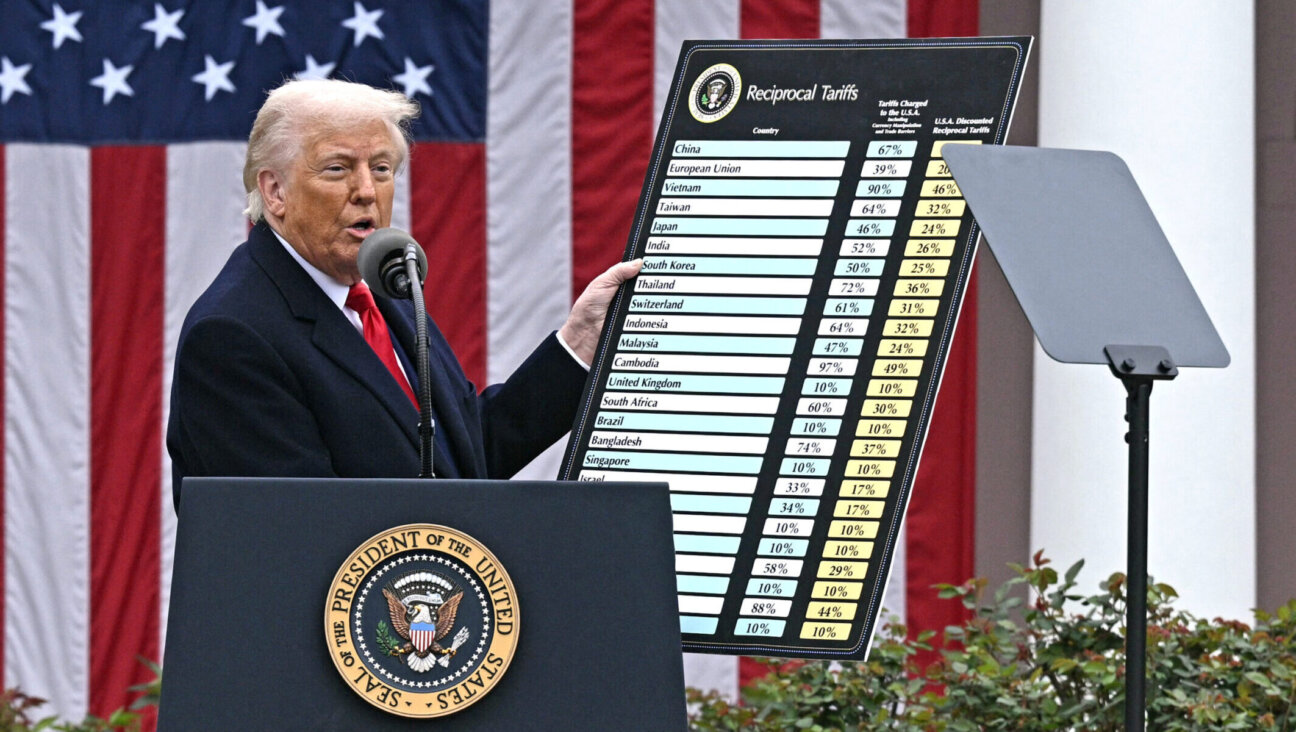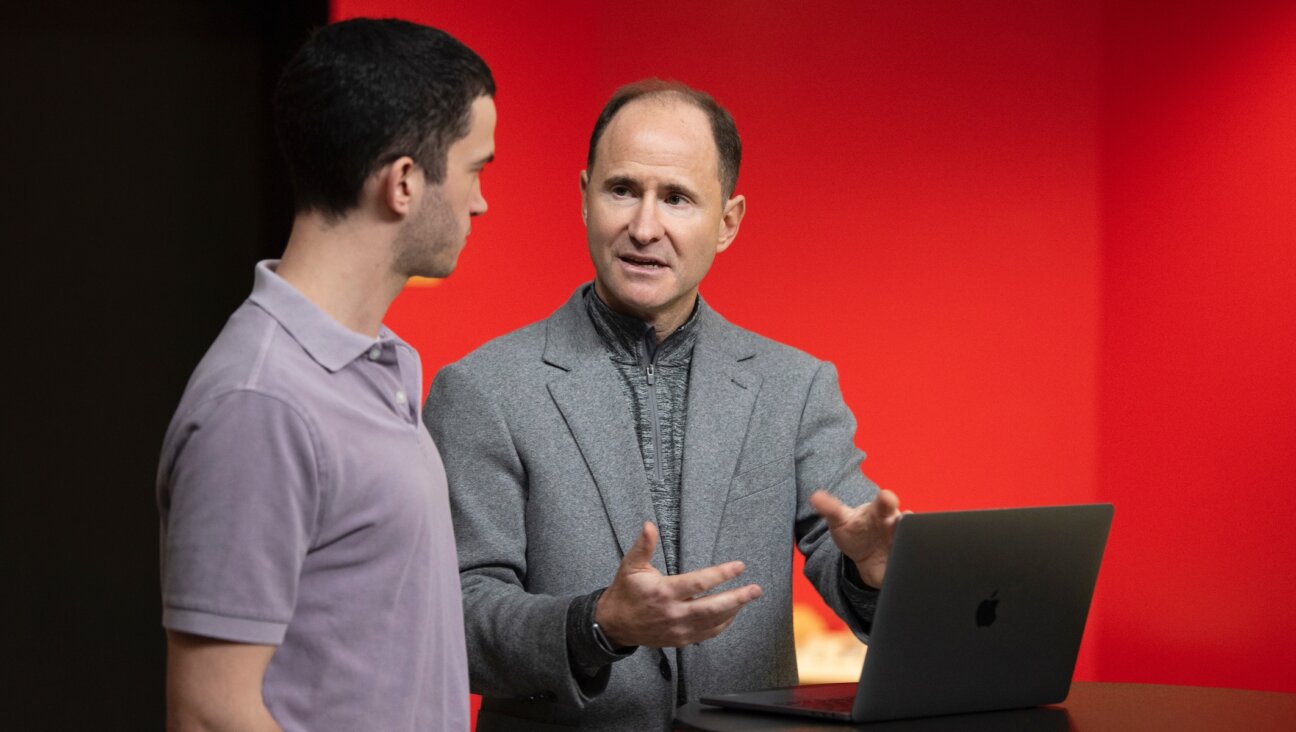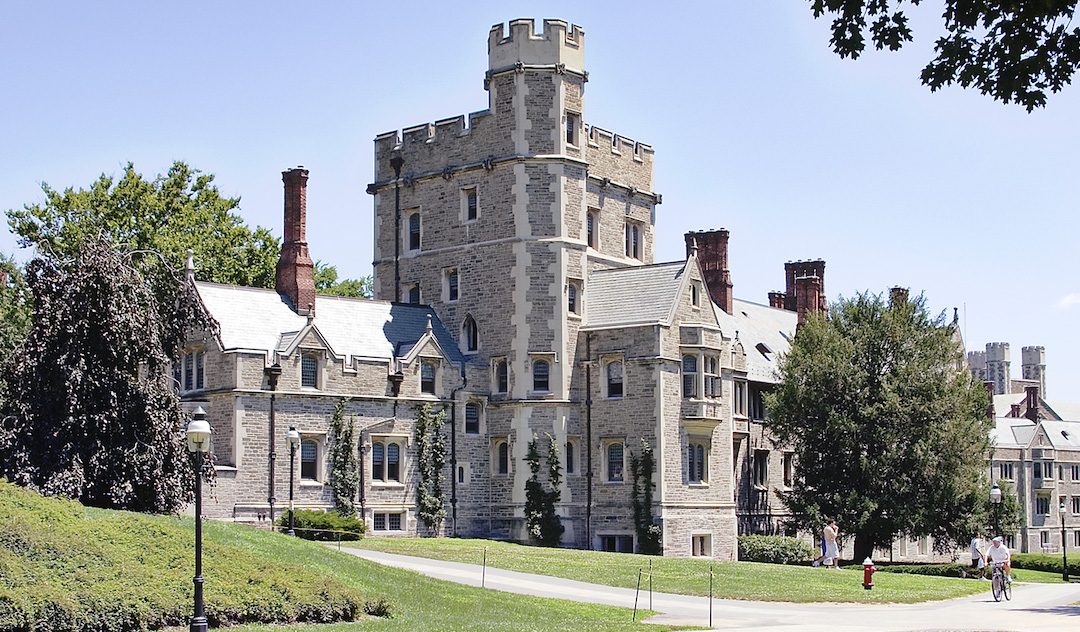Christopher Hitchens Dies at 62

Image by getty images
Christopher Hitchens, the atheist and iconoclast who discovered in adulthood that he was of Jewish descent, has died.

Christopher Hitchens Image by getty images
Vanity Fair, where much of Hitchens’ work appeared, announced his passing late Thursday night on Twitter. He was 62 and suffering from esophageal cancer.
Hitchens, born in Britain but more recently naturalized as an American citizen, emerged from the British left in the 1970s, joining the New Statesman as a journalist.
He pursued some of his targets for decades, urging a war crimes indictment of Henry Kissinger for his role in the Nixon administration as an architect of its policies in Indochina and Latin America.
He also sought to debunk the aura of saintliness that surrounded the late Mother Teresa.
Hitchens had a complicated and evolving relationship with Israel and Judaism.
Regarding Israel, he allied himself in the 1970s and 1980s with Palestinian nationalists and called himself an anti-Zionist.
As an atheist, he engaged with Judaism as he did with other faiths – with disdain for what he saw as a corrupting, malign irrationalism.
Yet in later years it was his inclination against religion that seemed to moderate his views on Israel.
He developed a grudging appreciation for a democracy in a region he saw burgeoning with radical theocrats.
He also detected among some of his fellow Israel critics a tendency toward anti-Semitism, as much as saying it was an element driving the thesis of overweening pro-Israel influence in “The Israel Lobby,” the 2007 book by Stephen Walt and John Mearsheimer.
“Mearsheimer and Walt belong to that vapid school that essentially wishes that the war with jihadism had never started,” he wrote in 2006 of the essay that was the basis for the book. “Their wish is father to the thought that there must be some way, short of a fight, to get around this confrontation. Wishfulness has led them to seriously mischaracterize the origins of the problem and to produce an article that is redeemed from complete dullness and mediocrity only by being slightly but unmistakably smelly.”
Hitchens was 38 when his maternal grandmother revealed to his younger brother Peter that she was Jewish.
He told The Observer in 2002 that the revelation “thrilled” him – living in Washington, he had acquired a passel of Jewish friends. Moreover, he had had a dream of being on the deck of a ship and being asked to join a minyan.
Despite his rejection of religious precepts, Hitchens would make a point of telling interviewers that according to halacha, he was Jewish.
Hitchens’ proclivity, his insistence on pleasing no one but himself, was evident this summer when his target was a small group of pro-Palestinian activists aiming to breach Israel’s blockade of the Gaza Strip on the anniversary of the Israeli raid on another flotilla that claimed the lives of nine Turks and earned Israel international opprobrium.
He could not resist tweaking Israel for a tendency to blunder into confrontation.
“Since Israel adopts a posture that almost guarantees a reaction of some sort in the not-too-distant future, and since there was such a frisson of violence the last time the little fleet set sail, there’s no reason for it not to become a regular seasonal favorite,” he wrote in Slate.
But then he went on to note the activists ties or sympathies with the Hamas-led government in Gaza, also noting Hamas’ embrace of The Protocols of the Elders of Zion.
“This disgusting fabrication is a key foundational document of 20th-century racism and totalitarianism, indelibly linked to the Hitler regime in theory and practice,” he wrote. “It seems extraordinary to me that any ‘activist’ claiming allegiance to human rights could cooperate at any level with the propagation of such evil material.”
He continued: “The little boats cannot make much difference to the welfare of Gaza either way, since the materials being shipped are in such negligible quantity. The chief significance of the enterprise is therefore symbolic. And the symbolism, when examined even cursorily, doesn’t seem too adorable.”
The Forward is free to read, but it isn’t free to produce

I hope you appreciated this article. Before you go, I’d like to ask you to please support the Forward.
At a time when other newsrooms are closing or cutting back, the Forward has removed its paywall and invested additional resources to report on the ground from Israel and around the U.S. on the impact of the war, rising antisemitism and polarized discourse.
Readers like you make it all possible. We’ve started our Passover Fundraising Drive, and we need 1,800 readers like you to step up to support the Forward by April 21. Members of the Forward board are even matching the first 1,000 gifts, up to $70,000.
This is a great time to support independent Jewish journalism, because every dollar goes twice as far.
— Rachel Fishman Feddersen, Publisher and CEO
2X match on all Passover gifts!
Most Popular
- 1

News A Jewish Republican and Muslim Democrat are suddenly in a tight race for a special seat in Congress
- 2

Fast Forward The NCAA men’s Final Four has 3 Jewish coaches
- 3

Film & TV What Gal Gadot has said about the Israeli-Palestinian conflict
- 4

Fast Forward Cory Booker proclaims, ‘Hineni’ — I am here — 19 hours into anti-Trump Senate speech
In Case You Missed It
-

Fast Forward Trump’s ‘Liberation Day’ includes 17% tariffs on Israeli imports, even as Israel cancels tariffs on US goods
-

Fast Forward Hillel CEO says he shares ‘concerns’ over campus deportations, calls for due process
-

Fast Forward Jewish Princeton student accused of assault at protest last year is found not guilty
-

News ‘Qatargate’ and the web of huge scandals rocking Israel, explained
-
Shop the Forward Store
100% of profits support our journalism
Republish This Story
Please read before republishing
We’re happy to make this story available to republish for free, unless it originated with JTA, Haaretz or another publication (as indicated on the article) and as long as you follow our guidelines.
You must comply with the following:
- Credit the Forward
- Retain our pixel
- Preserve our canonical link in Google search
- Add a noindex tag in Google search
See our full guidelines for more information, and this guide for detail about canonical URLs.
To republish, copy the HTML by clicking on the yellow button to the right; it includes our tracking pixel, all paragraph styles and hyperlinks, the author byline and credit to the Forward. It does not include images; to avoid copyright violations, you must add them manually, following our guidelines. Please email us at [email protected], subject line “republish,” with any questions or to let us know what stories you’re picking up.












